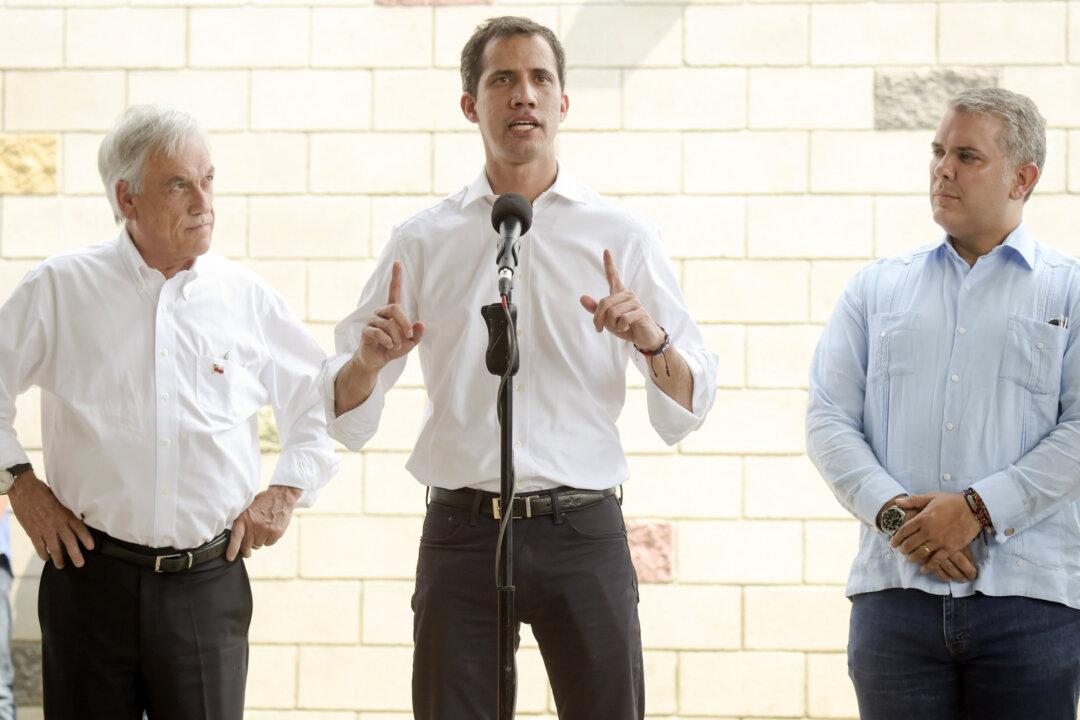Troops loyal to illegitimate socialist dictator Nicolás Maduro violently drove back foreign aid convoys from Venezuela’s border crossings on Feb. 23, drawing condemnation from the United States, and prompting interim President Juan Guaidó to propose that the international community consider “all options” to secure the impoverished nation’s freedom.

Venezuelan interim president Juan Guaido (C) speaks during a press conference, flanked by presidents Ivan Duque (R) of Colombia and Sebastian Pinera of Chile (L) in Cucuta on the Colombian side of the Tienditas International Bridge before the attempt to cross humanitarian aid over the border into Venezuela on Feb. 23, 2019. Raul Arboleda/AFP/Getty Images
|Updated:




